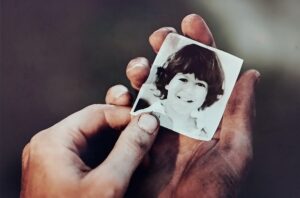
2.3. Rituals and Cultural Significance
In many cultures, objects are tied to traditions and rituals. A family heirloom, for instance, might carry generations of history. Losing such an object can feel like breaking a chain of heritage, leading to a profound sense of loss.
3. The Evolutionary Roots of Object Attachment
3.1. Survival and Tools
From an anthropological standpoint, our attachment to objects might have evolutionary roots. Early humans relied on tools for survival, and those who took care of their tools were more likely to thrive. Over time, this practical attachment may have evolved into the emotional bonds we form with objects today.
3.2. Objects as Cultural Carriers
Objects also play a key role in passing down culture. They carry stories, traditions, and knowledge from one generation to the next. The loss of culturally significant objects—like artifacts or historical documents—can feel like losing a piece of collective identity.
3.3. Objects in Rites of Passage
In many societies, objects are central to life’s milestones. A wedding ring, a graduation cap, or a childhood blanket can symbolize important transitions. Losing these objects can disrupt the symbolic journey they represent, making the loss feel even more profound.




